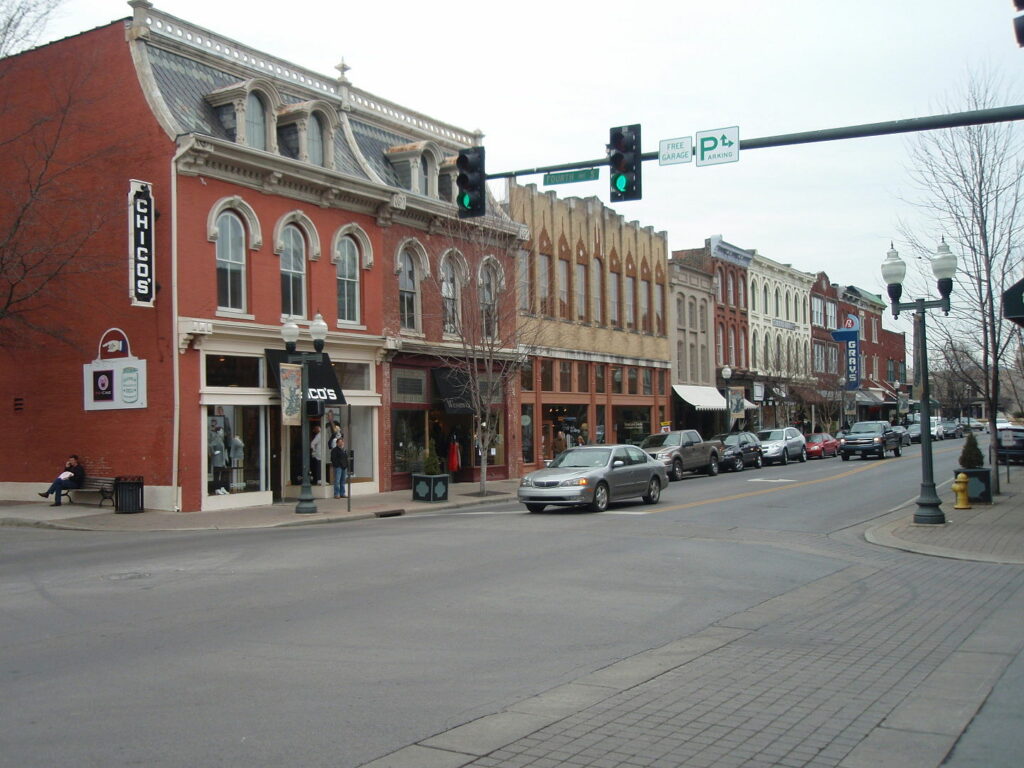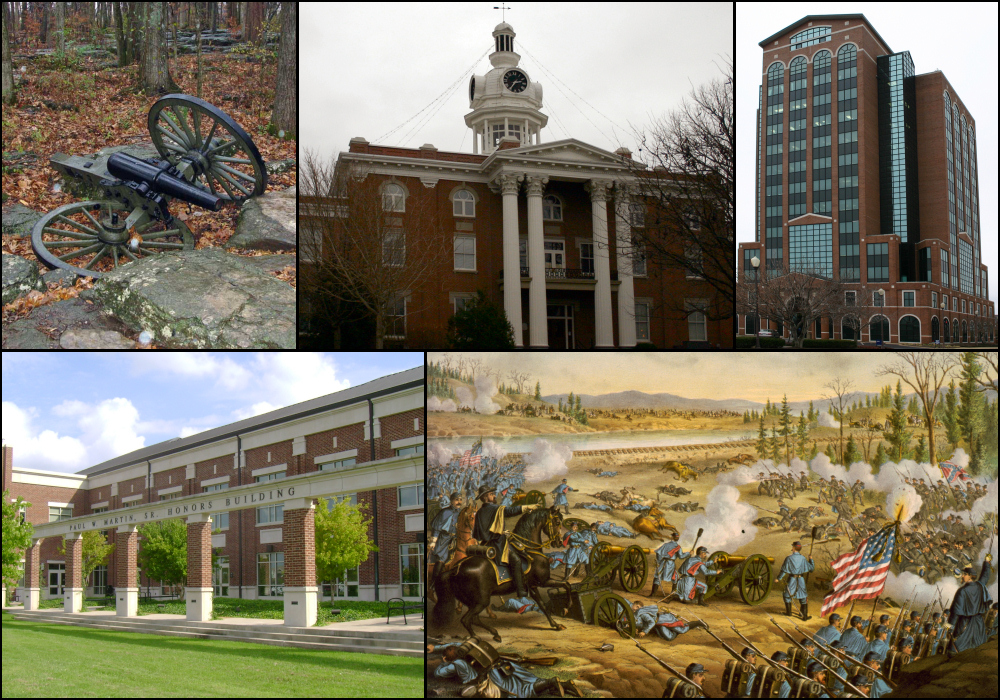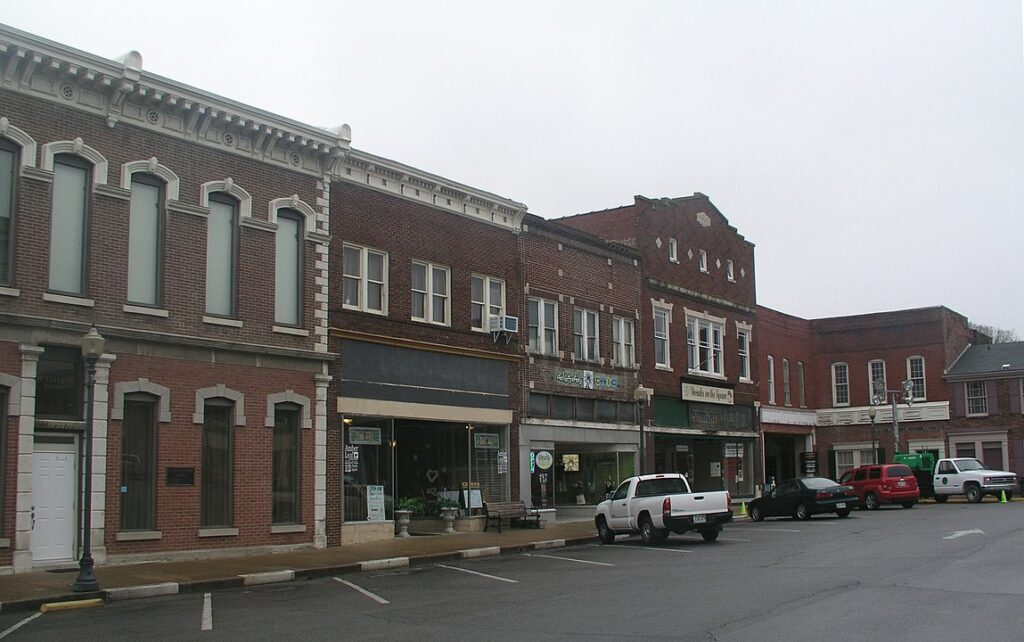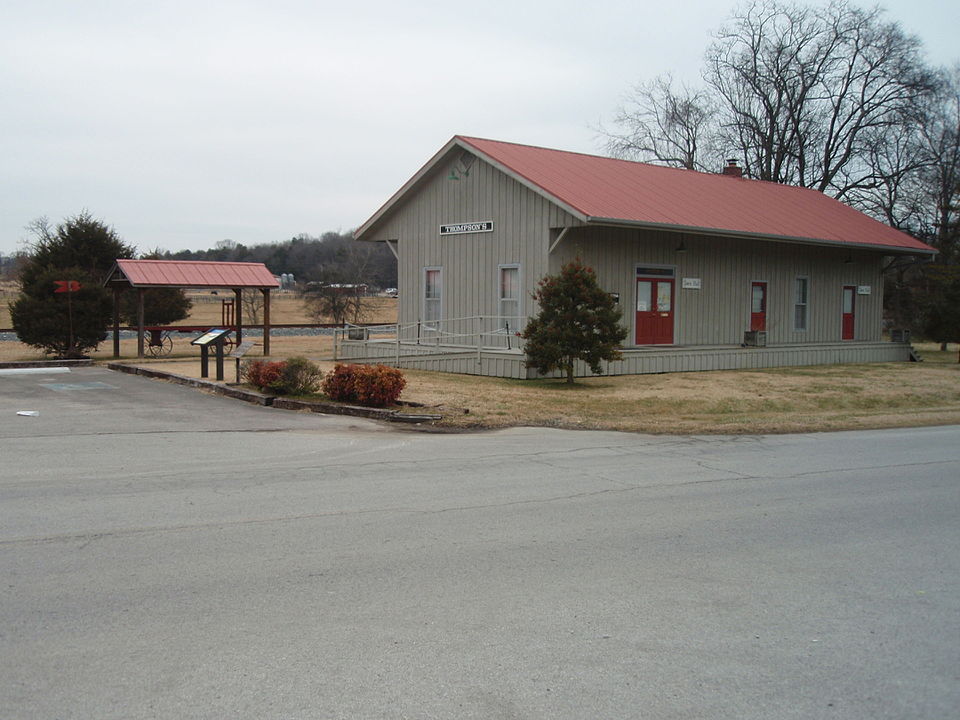The capital of country music, a producer of the finest whiskey tasted by man, and home to Elvis Presley and Graceland, Tennessee is an amazing state. It was the 16th state to join America and has a rich history of civil war battles, hardened frontiersmen, and moonshiners in the mountains. This may be the reason it officially adopted the nickname the Volunteer State.
Tennessee is a great state for real estate investors for a number of reasons, but taxes come to mind rather quickly. Property taxes in the volunteer state are some of the lowest you can find across the USA. As an extra perk, there are no state income taxes on wages, which saves residents quite a bit of cash. There is also a low flat tax on interest, bonds, and dividends from investments like stocks. According to The Courier, Tennessee has the second-lowest taxes in the United States after Alaska.
In addition to the low taxes, Tennessee also has a very low cost of living and affordable housing. According to Missouri’s Economic Research, Tennessee is the 6th most affordable state in the entire USA. The Volunteer State stands out specifically in grocery costs, transportation, and housing. As per the 2020 census, median housing prices for Tennessee stood at $185,000 for a property. While prices across the US have increased rather dramatically in the past 2 years or so, Tennessee’s rank as one of the most affordable housing markets remains.
Another staple of the state is a great education system. This includes public schools, charter schools, and especially higher learning facilities. The state is home to close to two dozen colleges and universities. This includes Vanderbilt University and Tennessee Tech.
Things to do in Tennessee
The capital and largest city, Nashville is synonymous with bluegrass and country music. The second-largest city, Memphis, is known for blues and soul. There are also plenty of rock and hip-hop groups originating from the state as well. It seems like wherever you are in Tennessee, you are close to great music.
Tennessee is also a bit of an odd state at times. Memphis is home to the largest pyramid in North America, which is also a Bass Shop Pro store. In addition to that, there is also a full-scale replica of the Greek Parthenon in Nashville’s Centennial Park. There is also a half-sized replica of the Titanic, which includes a museum near the Great Smoky Mountains.
Tennessee & Employment
In the past, Tennessee was known primarily as an agricultural state like many of its neighbors. Health care, transportation, entertainment, and the finance industry are growing fast in the state. The headquarters of FedEx, Autozone, and Caterpillar are located in the state. There is also the Oak Ridge National Laboratory, which provides employment for local scientists and researchers.
Tech companies have also been making Tennessee home. The computer manufacturer Dell has offices in Nashville, as well as the commerce giant Amazon.
All of the above helps make Tennessee a great place not only to live in but also to invest in. As such we’ve compiled a list of our top 10 cities to consider for real estate investment in Tennessee.
Notable mention – Smyrna
Just 20 miles southeast of Nashville sits the suburban municipality of Smyrna. It was named after the ancient Greek city which is located in modern-day Turkey. It is a beautiful all-American suburb that is crisscrossed with creeks, rivers, and lakes. The city is also home to a small local airport, and a Nissan assembly plant which provides employment for a lot of the local residents. Other residents tend to commute to nearby Nashville for work.
Smyrna is growing at a fast pace of 1.57% per year and has grown by 35% since the 2010 census. The number of residents is currently listed as 54,000 within the city. The rate of homeownership is a bit below the average at 57%. Housing prices have increased by 31% since 2021 and currently stand at $377,000 on average. Median rent is listed as $1,033 per month.
10 – Collegedale
20 miles east of Chattanooga, sits the town of Collegedale. As its name suggests, it is a college town of sorts and is home to Southern Adventist University. The city is also home to a small airport called the Collegedale Municipal Airport and the headquarters of McKee Foods the producer of Little Debbie cookies. The southern border with Georgia is also closeby and is roughly 10 miles south of the town.
Collegedale has grown by 39% since the 2010 census bringing the number of residents to 11,500 within the city. Like many other college towns, Collegedale has a younger than average population and a low rate of homeownership at 49%. Housing prices have also increased sharply since the last year and stand at $362,000 on average. Rent is relatively low, and is listed as just below $1000 per month. As college towns are always great for real estate investments, Collegedale seems like a solid spot.
9 – Oakland
Located on Tennessee’s southwestern border near Memphis is the suburb of Oakland. It is just 35 miles away from downtown Memphis, where many of the residents commute daily. A lot of the houses in the town seem to have been built in the past decade or two, making them relatively new. Local residents can enjoy fishing in many of the small ponds dotted across the town or make use of the Fair Oaks Golf Club to pass the time.
The town has grown by 37% since the 2010 census bringing the number of residents to 9000. Yearly, it is growing at a fast pace of 2.84%, which may explain all the new housing. The rate of homeownership is very high at 91%. This may be why housing prices have increased by 15% since 2021, bringing housing prices to $277,000 on average. Returns on rent are $1500 per month, possibly due to low inventory amid the rental market.
8 – Franklin

Just south of Nashville is the city of Franklin, Tennessee. This upscale suburb is filled with parks, rivers, and a museum or two. It is also filled to the brim with history and was the backdrop for a major civil war battle. There are also some great spots for sports in Franklin, including two golf courses, an outdoor soccer complex, and an urban air trampoline park. There is also a historic downtown area with bars, cafes, and restaurants with great vibes.
The population of Franklin is growing at a rate of 2.37% per year and has grown by 42% since the 2010 census. Homeownership is roughly at the national average in the mid-60%. The population tends to be more educated than in other places, with the majority of its 89,000 residents attending a higher education institution. Property prices have increased by 43% since 2021 and stands at $809,000 on average. Rent is listed as $1400 but may have increased since.
7 – Murfreesboro

Just east of Franklin is the municipality of Murfreesboro. Like Franklin, it is also a suburb of Nashville. Unlike Franklin, Murfreesboro is home to Middle Tennessee State University. The city is a vibrant college town with plenty of museums dedicated to local history, geography, and natural history. There’s also quite a lot to do in the town besides museums. This includes a large shopping mall, parks, and plenty of Tennessee barbeque restaurants.
The population of Murfreesboro has increased by 50% since the 2010 census, meaning that there are now 163,000 residents. As a college town, the population is younger on average than in other places and homeownership is listed at 52% which is low. Housing prices have increased by 33% since 2021 and cost $400,000 on average. Rent is listed as $1100 per month.
6 – Lebanon
Also in the greater Nashville area, just east of the city is Lebanon, Tennessee. Like some others on the list, it has a handful of history and Civil War museums. It is also home to Cumberland University and Wilson County Expo Center. There is also a nice downtown area which includes an antique mall, shops, and cafes.
The local population is growing at a rate of 2.86% per year and has increased by 51% since the 2010 census bringing the number of residents to 39,000. Despite being a college town, the median age is average and not below it. Homeownership is listed at 58%, which is high for a college town. Housing prices have increased by 35% since 2021 and stand at $422,000 on average. Rent is listed as just below $1000 per month.
5 – Gallatin

Also in the greater Nashville area, just east of the bigger city is Gallatin. The city is based on the north banks of the Cumberland River and has a few great parks overlooking it. It is also home to the Volunteer State Community College, Welch College, and a Facebook Data Center which have contributed to its growth. There is also a small airport within the municipal limits called the Music City Executive Airport.
Gallatin has grown by 64% since the last census and is home to 49,842 residents currently. It is growing at an annual rate of 4.86%. The rate of homeownership is 62%, close to the national average. The average age in Gallatin is slightly above the national average at 39. Property prices have grown by 29% since last year and cost around $414,000. Rent is listed as just below $1000 on average.
4 – Mount Juliet
Just south of Gallatin, in the greater Nashville area is the municipality of Mount Juliet. It is just 17 miles east of downtown Nashville. Mount Juliet has been featured in several different articles for fastest growing cities in the USA. This polished suburb has several creeks that tear through its landscape, including Stoners Creek. The city is home to the Eisei-en Bonsai Garden and the Nashville International Airport is also just 10 minutes away.
There may be some truth to Mount Juliet being a fast growing city. It is growing at a rate of 3.44% per year and has increased by 73% since the 2010 census. The number of residents has grown to 41,000 in the past year. The population seems to be slightly more educated than the norm and the rate of homeownership is 76%, also slightly above the norm. Housing costs $514,000 on average, a 33% increase since 2021. Average rent is noted as $1424 per month.
3 – Spring Hill
30 miles south of Nashville sits the pleasantly named city of Spring Hill. The city also has its abundance of creeks, streams and rivers which contribute to its charm. There are several parks including a skate park for kids in the city. Spring Hill also hosts a few companies in its borders. This includes General Motors, who have a manufacturing site and Ryder who have a logistics park.
The population of Spring Hill is a tad younger than the norm, suggesting many families with kids. Homeownership is also a bit higher at 76%. The city has grown by 74% since the 2010 census at a rate of 4.78% per year. The number of residents has crossed above 50,000 within the city. Housing prices have climbed by 41% since 2021, making $495,000 the average. Rent is still affordable at $1400 per month.
2 – Nolensville
Also on the south-side of the greater Nashville area is Nolensville. The city was established by a Revolutionary War veteran William Nolen. Nolensville also has plenty of Civil War history with several skirmishes that took place in the region. It is currently home to two large public parks, some hiking trails and indoor recreation centers. The city also has a handful of successful sports teams, and their Little League Baseball team made it to the Little League World Series.
Nolensville is growing at an explosive rate of 8.57% per year. The number of residents currently stands at 13,000, an 124% increase since the 2010 census. The rate of homeownership is very high at 90% making rental properties scarce. Property prices have gone up 42% since 2021, and cost $726,000 on average. Rent is also high at $2260 per month.
1 – Thompson’s Station

Between Spring Hill, and Franklin sits the strangely named town of Thompson’s Station. It was named after Dr. Thompson who donated land after a railroad station was built on the land which became the town. It is at large a residential community, with many commuting to nearby Nashville for work. Thompson’s Station does have a few great places to shop, and recently the Mars Petcare Global Innovation Center opened within its borders.
Thompson’s Station is the fastest growing city since the 2010 census, and has grown a whopping 261% since. It is growing at a fast pace of 6% per year on average and there are now 7929 residents. The rate of homeownership is 82% which can be an advantage for buy-to-rent investors. Housing has increased by 43% in the past year and property costs $668,000 on average. Rent is listed as $1800 per month.
Tennessee & Real Estate
The Volunteer State has low taxes, a very affordable cost of living, great food and tons of natural beauty. Tennessee is also growing at a rate of 8.9% per year, outpacing the national average of 7.4% according to U.S. News. While most of this growth has been around the Nashville area, other parts of the state are also thriving. Low taxes, growth and great people help make Tennessee a good spot for real estate investing. There’s always something to do and many reasons to love Tennessee.
